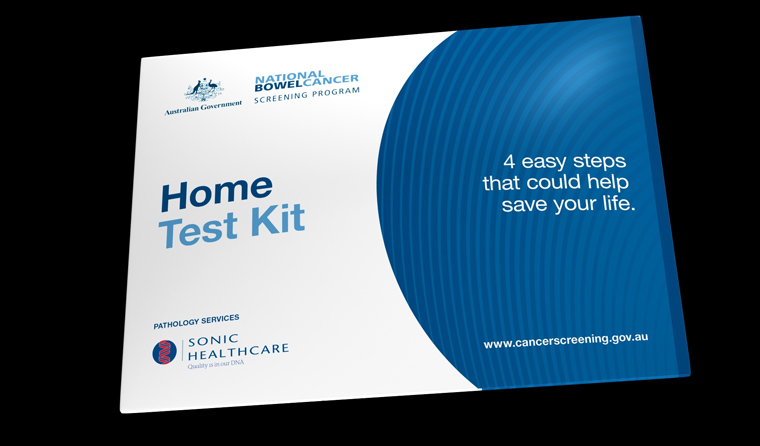News
‘We have to normalise it’: Boosting bowel cancer screening rates
Participation in the National Bowel Cancer Screening Program remains low, but Professor Jon Emery believes GPs are instrumental to boosting numbers.
 Professor Jon Emery believes GPs are central to efforts to boost National Bowel Cancer Screening Program participation rates.
Professor Jon Emery believes GPs are central to efforts to boost National Bowel Cancer Screening Program participation rates.
Australia has one of the world’s highest rates of bowel cancer, with the disease being the nation’s third most common type of newly diagnosed cancer and the second biggest cancer killer.
However, Australia also has a strong weapon in the fight against the disease – the National Bowel Cancer Screening Program (NBCSP).
‘We know that those people who have participated in the program and are diagnosed with a bowel cancer have much higher survival rates than people who haven’t been screen-detected,’ Professor Jon Emery, GP and Herman Professor of Primary Care Cancer Research at the University of Melbourne and Western Health, told newsGP.
‘We also know that screen-detected bowel cancers within the program are associated with much higher rates of survival than those detected in another way.’
But while the program is cost-effective and offers a good level of early detection, it suffers from one ongoing problem – a relatively low participation rate, as shown in the most recent monitoring report from the Australian Institute of Health and Wellbeing (AIHW).
‘It’s disappointing to see [the rate] stuck at 41%, because we know participation is such a key issue for the success of the bowel screening program and for really starting to bring down mortality rates for bowel cancer,’ Professor Emery said.
Professor Emery believes the results may reflect the fact the program has made its final expansion to its complete cohort group – a screening test every two years from the ages of 50–74.
‘The program has brought in some of the younger age groups, and we know that people in their 50s are less likely to do the test than older populations,’ he said. ‘So now that the program’s being rolled out to those younger cohorts, it’s made it a bit harder to increase participation rates.’
Professor Emery is very clear, however, that boosting participation in the NBCSP is vital to lowering rates of bowel cancer.
‘While our bowel cancer survival rates are improving – and that’s because of improvements in treatment – the really big change would be if we could get higher rates of participation in the screening program,’ he said.
‘Just encouraging our patients to do what is actually a simple test would really have a major impact on reducing the burden of bowel cancer in this country … even a 10% increase in participation would have a large impact on early detection of bowel cancer and reduction of bowel cancer deaths.’
While the delivery of the NBCSP screening test direct to patients to carry out in their own home has historically sidelined GPs, Professor Emery believes they are nonetheless vital in efforts to boost participation; for example, by identifying cohorts of patients within their own practices that tend to be under-screened, and encouraging them to complete the test.

Professor Emery said the bowel cancer screening test kit is cost-effective, has good accuracy and is simple to use.
‘We know men are less likely to do it than women,’ Professor Emery said. ‘Younger cohorts are also less likely to do it, as are lower-socioeconomic groups, those in very remote regions and those who speak a language other than English.
‘These are the subgroups we should really be targeting, I think, to try and find ways to increase their participation.’
Professor Emery is also aware the screening test – which consists of a kit for home collection of a stool sample for Faecal Occult Blood Testing (FOBT) – has attracted a bit of a ‘yuck factor’ for some patients. But he believes GPs and their practice teams can be instrumental in combating this among patients, simply through communication.
‘We have to normalise [the test], we need to try and get patients to realise it’s not such a yucky test as potentially imagined,’ he said.
‘A lot of patients may be put off by the kit; it can appear quite complicated. So actually having some kits to demonstrate to patients in the practice, to show patients it’s not quite as complicated as it might appear, is another important thing a practice can be doing, particularly for those groups with low health literacy.
‘Practice nurses can also play an important role in demonstrating how easy the kit is to use.’
There is also assistance on the way for GPs and their teams.
‘Cancer Australia is about to launch a new GP toolkit to look at ways a practice can become more directly involved in supporting their patients to participate in the program,’ he said.
‘[The toolkit] will include informational resources, but also will assist in getting practices to think about things they can do, sort of a practice system improvement, to help identify people who are under-screened and try and increase screening participation at a practice level.’
In the meantime, Professor Emery takes heart from the fact that NBCSP participation rates have remained steady rather than decreasing and hopes that in the future, the only way is up.
‘It’s still relatively early,’ he said. ‘This is the first year the proper program is fully ramped up, where we’ve got every cohort from 50–74 receiving a kit every two years.
‘It’s only really now that the program is fully in swing.’
Bowel cancer Cancer Australia Cancer screening National Bowel Cancer Screening Program
newsGP weekly poll
How often do patients ask you about weight-loss medications such as semaglutide or tirzepatide?